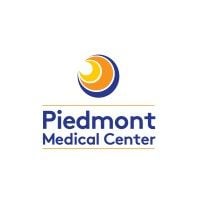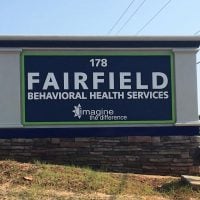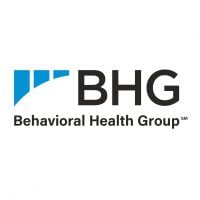
Piedmont Medical Center for Psychiatry
Drug Rehab Center in Rock Hill, South Carolina
- Mental Health
- Dual Diagnosis
Piedmont Medical Center for Psychiatry provides inpatient level care, accepting private health insurance, for those with a dual diagnosis specifically related to mental health.
About This South Carolina Facility
Piedmont Medical Center for Psychiatry is an addiction treatment facility located in Rock Hill, South Carolina. Established in 1983, this center aims to provide comprehensive care for individuals struggling with dual diagnosis and mental health issues. At Piedmont Medical Center, patients can receive treatment in both inpatient and dual-diagnosis programs, allowing for a tailored approach to their specific needs. The facility accepts private health insurance, making it accessible to a wide range of individuals seeking professional support.
At Piedmont Medical Center for Psychiatry, patients dealing with addiction and substance abuse can access a variety of services and treatments. The facility offers comprehensive dual-diagnosis programs that address both mental health disorders and addiction simultaneously, helping individuals understand the root causes of their struggles and providing them with the tools to overcome them. Treatment methods such as therapy modalities (including cognitive-behavioral therapy and dialectical behavior therapy), psychiatric evaluation, medication management, group counseling sessions, personalized treatment plans, crisis management assistance are available at Piedmont Medical Center as well. With experienced staff and a patient-centered approach to care, this facility is dedicated to helping individuals navigate their path towards recovery.
Genders
Ages
Modality
Additional
Conditions and Issues Treated
When addiction and psychiatric issues co-occur, the addict’s recovery is more successful when both conditions are treated. A dual diagnosis refers to a condition in which the patient is diagnosed with two health issues: addiction and bipolar disorder. The most common therapies are psychotherapy, behavioral therapy, spiritual counseling, 12-step programs, and medication management.
Levels of Care Offered at Piedmont Medical Center for Psychiatry
This center offers a variety of custom treatment tailored to individual recovery. Currently available are Dual-Diagnosis, Inpatient, with additional therapies available as listed below.
Inpatient treatment centers offer a safe, secure, and often medically supervised environment for drug or alcohol-addicted individuals. Many of these facilities are equipped to provide detoxification, treatment for co-occurring mental health disorders, and aftercare programs. The patient typically spends 28 to 30 days at the facility and will receive extensive drug counseling.
Therapies & Programs
At Piedmont Medical Center for Psychiatry , to learn from past mistakes and improve one’s situation, the recovering person meets individually with a therapist. The counselor or therapist will address addiction causes, triggers, mental issues, dual diagnosis, and aftercare plans during this time. This is a very intense and challenging process. Some clients find it easier to open up to someone other than family or friends who understand their struggles with addiction.
Couples therapy sessions are typically used to help couples in recovery from drug addiction work through their issues. These types of sessions can be beneficial for many reasons, including the fact that they add a layer of accountability when both partners in a couple are recovering from addiction.
Therapy can also provide addicts with another effective way to cope with stress and avoid relapse during difficult situations. This type of therapy can help improve communication with their partners, which can strengthen the relationship and prevent future problems that might lead to relapse.
Family therapy is a crucial part of drug treatment and getting sober. It is one of the most effective ways to help addicts stay on the path to long-term sobriety. An addict’s family can play a vital part in helping them to avoid relapse. They can spot the warning signs and help them get back on track.
In group therapy, recovering addicts meet with a therapist and other people in recovery. Some groups are closed, meaning only people who share the same addiction or problem can attend. Others are open to anyone who wants to stop using drugs or drinking alcohol. Group therapy sessions typically focus on one topic each week or month so that recovering addicts can discuss issues they face daily.
Nutrition therapy has been used to help drug addicts for decades. Many early reports on addiction treatment indicate that some patients recovered from the “satisfying power of food”. For years, this phenomenon has been utilized as a treatment modality in eating disorders for adults, adolescents, and children.
Specific nutrients have been identified that influence neurotransmitters associated with reward pathways of the brain. Studies have shown that carbohydrate loading with complex carbohydrates to elevate serotonin levels was effective in treating bulimia nervosa. This approach prompted researchers to explore the use of this type of nutritional intervention in other disorders.
The goal of nicotine replacement therapy is to provide a safe alternative for people trying to quit smoking. It does this by giving small doses of nicotine that help manage cravings while breaking habits associated with cigarettes.
Nicotine Replacement Therapy (NRTC) uses products like skin patches and gum that deliver low-dose nicotine, which prevents cravings in those quitting. This makes it easier for them to make a gradual transition from smoker to non-smoker.
Patient Experience
Experiential Therapy at Piedmont Medical Center for Psychiatry
Experiential Therapy is a different way of thinking about addiction treatment. It uses physical activities to help work through troubling emotions, memories, and trauma that are sources of psychological issues like addiction.
Experiential Therapy can be an effective option for those who have struggled with past traumas or challenges associated with life decisions such as drug use. The non-traditional approach helps people deal more effectively with these struggles. It also allows them to gain new perspectives on their behavior patterns by recreating experiences in healthy ways rather than continuing old habits that may no longer serve them.
Payment Options Accepted
For specific insurance or payment methods please contact us.
Is your insurance accepted?
Ask an expert, call (888) 674-0062
Additional Details
Specifics, location, and helpful extra information.
Rock Hill, South Carolina 29732 Phone Number(803) 329-1234 Meta DetailsUpdated November 25, 2023
Staff Verified
Patient Reviews
There are no reviews yet. Be the first one to write one.
Rock Hill, South Carolina Addiction Information
More than 610,000 of South Carolina residents, or a staggering 11.9% of the state population, uses illicit drugs and another 230,000 residents abuse alcohol every year. A majority of the illegal drugs used and abused are opioids. Marijuana use and underage drinking occur amongst the young residents of this state–though at a lower rate compared to the national average.
Rock Hill, South Carolina has one of the highest drug addiction and abuse rates in the entire state. The most commonly reported drugs used in the state include marijuana, heroin, cocaine, and methamphetamine. Over 1,000 admissions to rehab centers for drug and alcohol abuse in Rock Hill, South Carolina, in 2016. Some facilities in Rock Hill offer inpatient treatment, while others offer outpatient treatment.
Treatment in Nearby Cities
- Simpsonville, SC (69.9 mi.)
- Beaufort, SC (176.0 mi.)
- Clinton, SC (57.8 mi.)
- North Augusta, SC (113.4 mi.)
- Goose Creek, SC (148.6 mi.)
Centers near Piedmont Medical Center for Psychiatry



The facility name, logo and brand are the property and registered trademarks of Piedmont Medical Center for Psychiatry, and are being used for identification and informational purposes only. Use of these names, logos and brands shall not imply endorsement. RehabNow.org is not affiliated with or sponsored by Piedmont Medical Center for Psychiatry.



